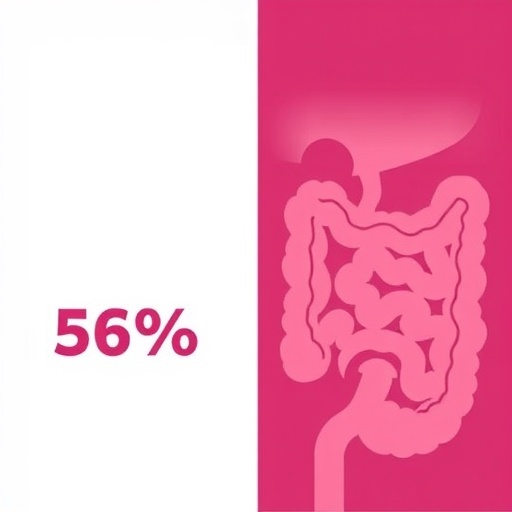A recent large-scale randomized controlled trial has cast doubt on the effectiveness of personalized risk communication in encouraging colorectal cancer screening uptake among average-risk adults. Despite considerable efforts to tailor patient and provider messages based on individual risk for advanced colorectal neoplasia (ACN), the intervention did not produce any significant increase in screening participation. Published in the prestigious Annals of Internal Medicine, this study challenges some prevailing assumptions about the power of personalized health communication to drive preventive health behaviors in clinical settings.
Colorectal cancer (CRC) is one of the leading causes of cancer-related morbidity and mortality worldwide, making timely screening a public health priority. Screening modalities such as colonoscopy and stool tests have been shown to reduce both incidence and mortality by detecting precancerous lesions and early-stage cancers. Nevertheless, screening rates remain suboptimal across many populations, prompting researchers and healthcare professionals to explore innovative strategies to enhance participation.
The study, conducted by researchers affiliated with Indiana University, enrolled 214 primary care providers and 1,084 average-risk patients aged 50 to 75 years who were overdue for CRC screening. The investigators sought to assess whether the delivery of personalized risk messages about ACN to both patients and their providers could positively influence the completion of screening tests within six months. The trial design incorporated both patient-facing and provider-targeted interventions, leveraging decision aids and notifications, respectively.
Patients were randomized to receive either a generic decision aid on CRC screening or a personalized one that integrated their individual ACN risk assessment. Simultaneously, providers were randomized to receive either generic notifications about their patients’ screening status or personalized notifications incorporating the same risk data. This factorial design permitted evaluation of the isolated and combined effects of personalized communication on CRC screening adherence.
Despite the theoretical appeal, the intervention failed to demonstrate a statistically significant impact. Approximately 39.8% of participants completed screening within six months, a rate consistent across all study arms regardless of the personalization of messages. This outcome suggests that simply adding individualized cancer risk information to standard communication tools may not overcome barriers to screening, such as logistical challenges, health beliefs, or systemic factors within healthcare delivery.
The findings confront an important question in preventive medicine: how can screening uptake be meaningfully improved beyond existing approaches? Personalized risk messaging has been lauded for its potential to resonate more powerfully with individuals by honing in on their unique health profiles. However, the null results here indicate that risk messages alone might be insufficient to change patient or provider behavior in colorectal cancer screening.
Several potential explanations exist for these findings. First, recipients may not have fully understood or trusted the personalized risk information, limiting its influence. Health literacy and numeracy play critical roles in how patients interpret such messages, and without adequate support, the added complexity might have even led to confusion or disengagement. On the provider side, competing clinical priorities, limited time, and alert fatigue could blunt the impact of additional personalized notifications.
Moreover, patient decisions around CRC screening are multifactorial, influenced by psychological, social, and economic considerations that risk messaging alone does not address. Factors such as perceived inconvenience of colonoscopy, concerns about discomfort or complications, lack of insurance coverage, and cultural attitudes toward cancer screening remain powerful determinants of behavior. The study’s outcome underscores the necessity for multifaceted interventions combining personalized communication with system-level enablers and behavioral support mechanisms.
In light of these results, further research is crucial to refine strategies that genuinely mobilize patients and providers toward screening adherence. Future trials may need to integrate personalized risk communication into broader frameworks incorporating counseling, navigation services, and improved access to screening modalities. Additionally, tailoring messages not only by clinical risk but also by psychosocial determinants might enhance relevance and motivation.
Beyond colorectal cancer screening, these findings bear implications for personalized medicine approaches across preventive health domains. The promise of risk stratification and individualized messaging is immense, but this study serves as a sobering reminder that information alone does not automatically translate to action. Behavioral science insights and patient engagement principles must guide the development of future interventions.
The study also highlights the importance of rigorous evaluation of digital health tools and communication strategies before widescale implementation. Personalized decision aids and risk notifications represent resource-intensive investments, and their clinical and economic value must be justified through evidence of efficacy.
In conclusion, while personalized risk messages appear intuitive as catalysts for health behavior change, this randomized controlled trial shows they do not significantly boost colorectal cancer screening uptake in an average-risk population. Healthcare systems aiming to increase CRC screening rates should consider comprehensive, multifaceted approaches rather than relying solely on personalized communication. The ongoing challenge remains to design interventions that effectively translate awareness and motivation into action, ultimately reducing the burden of colorectal cancer.
Research correspondence and embargoed requests can be directed to the study authors and media contacts affiliated with the American College of Physicians and Indiana University, underscoring the importance of collaboration between academic institutions and professional organizations in advancing preventive medicine.
Subject of Research: People
Article Title: Impact of Personalized Risk Messages on Uptake of Colorectal Cancer Screening: A Randomized Controlled Trial
News Publication Date: 2-Sep-2025
Web References: http://dx.doi.org/10.7326/ANNALS-24-03144
Keywords: Colorectal cancer, Risk communication, Cancer screening




